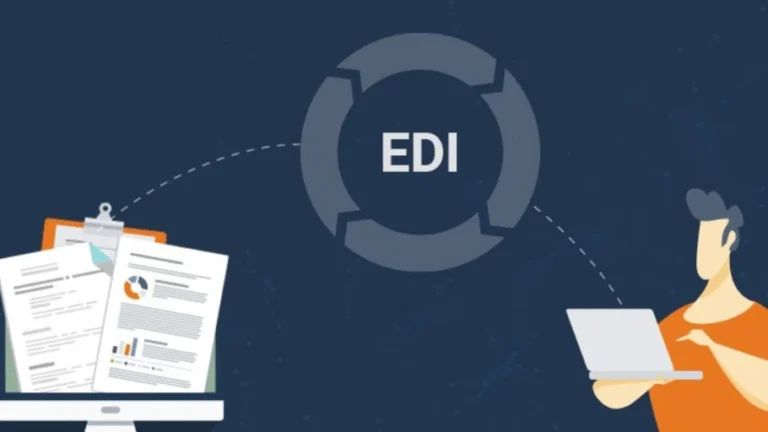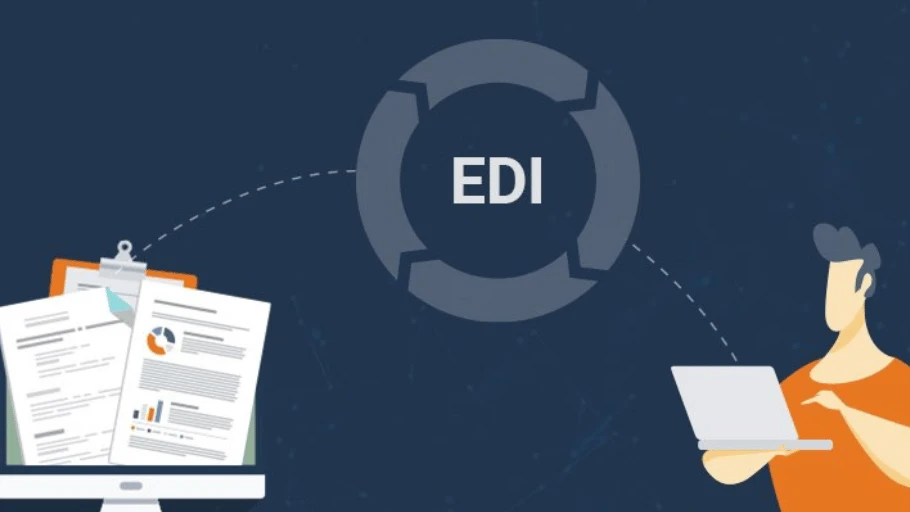The rise of digital technology is assisting wholesalers to optimize operations. One of the most significant advancements in recent years is Electronic Data Interchange (EDI).
EDI is the electronic exchange of business documents between trade partners. For a wholesale business, this can streamline operations, enhance efficiency, and improve collaboration with trading partners. With its many benefits, EDI has the potential to revolutionize your wholesale operations.
In this guide, we look at the advantages and disadvantages of Electronic Data Interchange.

What is Electronic Data Interchange (EDI)?
EDI operates in two formats: automated EDI and web-based EDI. Automated EDI functions by creating a direct connection between a wholesaler’s and partners’ back-office software. This streamlines business processes and eliminates manual data entry.
Web-based EDI uses a secure online interface accessible via the Internet to exchange documents between trade partners. This EDI does not need software installations or specialized hardware.
Advantages of EDI
Before you get started with EDI, look at the benefits of Electronic Data Interchange for wholesalers:
Increased Efficiency
EDI can increase your business efficiency. EDI automates these processes, meaning you can send and receive documents quickly. This increased efficiency can help save time and reduce the risk of delays from errors.
Streamlined Order Processing
EDI automates and streamlines the order processing system. Orders are received electronically and are directly inputted into the system. This eliminates the need for manual data entry, leading to faster order processing. You can also handle a larger volume of orders, thus enhancing operational efficiency.
Streamlined order processing also enhances your service to customers. You can provide them with accurate information promptly, improving their experience and increasing their loyalty to your business.
Improved Data Accuracy
Data Security
EDI also encrypts data during transmission, making it accessible only to authorized users. This ensures your sensitive business data stays safe. The added benefit of an audit trail makes all transactions traceable, promoting transparency and aiding in compliance.
Improved Collaboration
Global Business Connections
Cost Savings
The lower risk of errors and data discrepancies can also save costs. The improved accuracy can prevent costly chargebacks and penalties.
Faster Cash Flow
EDI enables wholesalers to improve their cash flow. With increased accuracy and faster invoicing, you can speed up the order-to-payment process. This results in improved working capital and a healthier financial position for your business.
Reduced Environmental Impact
Competitive Edge
Potential Drawbacks of EDI
Initial Cost
While there is an initial cost, EDI does not have high maintenance costs or utilize expensive resources. This can offset the upfront payments.
Technical Complexity
You can prevent this issue by choosing an easy-to-use EDI system. Pick a provider who offers full support and teaches you how to use the system. This will make things easier and help you get the most from your EDI system.
Dependence on Partners' Capabilities
Open communication about the benefits of EDI and helping during the transition period can encourage your partners to adopt this technology. By building strong relationships and demonstrating the advantages of EDI, you can ensure its successful implementation across your supply chain.
Optimize Your Business Processes with Salesorder ERP Solution
Salesorder provides a comprehensive ERP solution designed for wholesalers.
Zenbridge, our partner company, manages connectivity to EDI. Zenbridge delivers a premium, yet cost-effective EDI solution. The transition process is straightforward, enabling you to start benefiting from the system effortlessly.
Reach out to us today to explore how our ERP software and EDI connectivity can transform your business operations.





